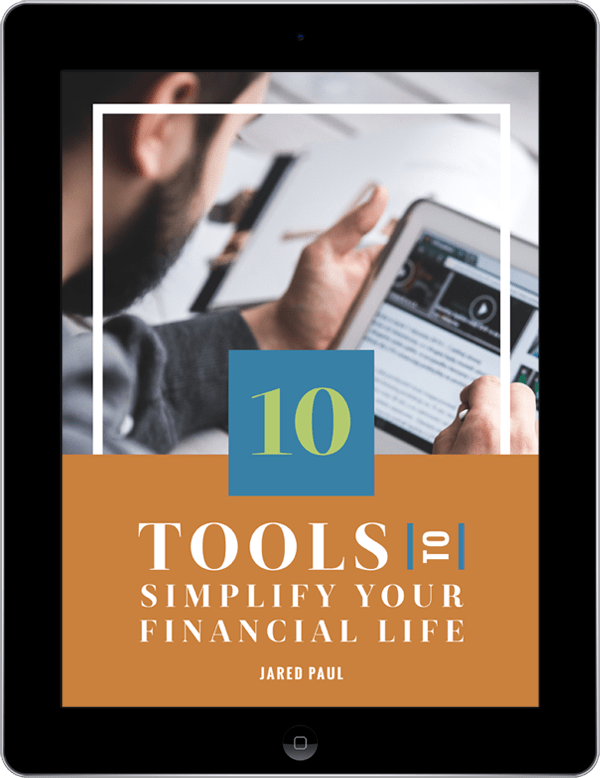It’s easy to get caught up in investing when you’re trying to build wealth.
In recent years, cryptocurrencies have become all the rage, and stories about 20-somethings striking it hot with the next new crypto-coin and becoming overnight millionaires is too tempting for many to ignore.
These are the sexy stories that take up the headlines because they are eye-popping to read, and keep you coming back for more. But these aren’t the tried and true methods for growing wealth.
Sure, you’re bound to hear about another overnight success in the coming years, but those are the few-and-far-between lottery winners that don’t make up the majority of success stories.
True success in wealth-building comes from making consistently smart decisions, and focusing on the little things that add up to the big things.
No, they aren’t always the sexy headlines you read about, but they are a much surer way to reaching your goals.
AVOIDING UNNECESSARY FEES
One of the areas that people don’t focus on enough is fees.
Whether it’s late fees, investment fees, overdraft fees, or any other type of fee companies think of; these can add up and put a real strain on your ability to grow wealth.
By making sure you are keeping these as low as possible, you can really start to see a difference over time.
To illustrate just how negative fees can be for your finances, here is a list of some of the common fees people deal with, and how much they can end up costing you if you aren’t careful.
INVESTMENT FEES
In a study conducted by Nerdwallet, they found that “paying just 1% in fees could cost a millennial more than $590,000 in sacrificed returns over 40 years of saving.”
The scenario they ran was for a 25-year-old beginning with $25,000 in a retirement account, adding $10,000 each year, and earning a 7% return over 40 years (Retiring at 65).
The calculations show that over this timeframe you will pay roughly $592,798 in fees, which represents a 25% loss in the total ending value of the portfolio.
You might think, “well, we’re going to have to pay some amount of fees to invest.”
Further in the study, they compared an actively managed mid-cap fund versus a lower-fee ETF that offers similar investment exposure. The actively managed fund had an expense ratio of 1.02%, while the ETF only cost .09%.
At the end of the 40 years, if you used the low-cost option, you would only pay around $60,000 in fees, representing just 2.5% of the ending balance. That’s a $533,000 savings!
LAST-MINUTE FLIGHTS
Jet-setting around the country has become a favored pastime for younger generations. Whether it’s heading off for a weekend trip to visit friends, or going on that winery tour in Napa Valley that you’ve been dreaming about, flying makes it all possible.
But failing to plan ahead can cost you.
CheapAir.com does an annual study on domestic flights in the U.S. to see when the best times to buy is. This year, they found that roughly 70 days out from your departure date would have been optimal.
But what if you waited until the last minute?
The study found that if you are booking your flights in the final 6 days leading up to the trip, it can cost upwards of $208, on average. When you factor in that the average American takes two flights per year, that’s over $400 per year in additional cost.
Extrapolate that over a lifetime, and we’re talking tens-of-thousands in additional costs and lost investment returns (you could have invested that money).
CREDIT CARD FEES
In 2018, the average American credit card debt rose to $6,375. And with a mean interest rate of 16.71%, the average American is paying roughly $1,065 in interest payments per year.
Add this on top of the late fees, cash advance fees, returned payment fees, and balance transfer fees and the number becomes quite daunting.
ADDITIONAL FEES YOU ARE PAYING
Those are just three examples of areas you can focus on in order to cut fees.
Other areas include the following:
- Late fees for utility bills
- Paying premium shipping rates because you waited until the last minute
- Higher hotel and home rental rates for booking late
- Overdraft fees at your bank
- Bounced check fees
- Late payment fee for tickets
- Payday loans
- Late payment fee for rent
And on and on…
HOW TO CUT YOUR FEES
So, what can you do to combat this situation?
There are 2 key things I recommend doing in order to make sure you aren’t overpaying on fees.
FEE ANALYSIS
Each year, do a fee analysis across all spending categories.
You will want to look through all of your fees, compare them to the average for those categories, and see where you overspent. But don’t just stop at the averages. Try and get them as low as possible.
Ideally, I recommend doing this on a quarterly or semi-annual basis. But if you are finding this to be too much, at least do it once each year.
On top of cutting fees, you’ll want to eliminate any fees that have persisted without you noticing.
A lot of companies intentionally keep their fees at levels that aren’t overly burdensome so you don’t really notice them – or better yet, so you forget about them. But all of those $8.99 monthly fees begin to add up. Don’t let them. For anything you haven’t been using on a consistent basis, call the company and cancel the service.
NEGOTIATE BETTER RATES
Ramit Sethi, from the popular website I Will Teach You To Be Rich, has become famous for his ideas on helping people negotiate on everyday items and bills.
People don’t realize that you can get your fees dropped by simply asking the companies with whom you do business.
Cable companies regularly give additional discounts if you inquire. I no longer have cable, but my brother has continued to do this for years with great success.
NO PENNY LEFT BEHIND
The key point is not that you need to be worried about every single penny that is coming in and out of your accounts. But you want to make sure that you aren’t losing the “war of attrition,” and slowly allowing additional fees to layer on top of one another.
In any given month, it might not seem like a lot, but over time, you could really be hurting your chances of building real wealth.
Capably Yours,
















